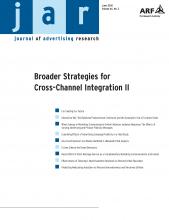Click on the PDF link for the complete article.
ABSTRACT
Event sponsors often do not receive proper credit for their efforts. This issue was examined in a field study involving over 300 baseball fans attending minor league games during the summer season. Signal detection analyses reveal that, even among such sports fans, the ability to correctly discriminate actual official sponsors of the home team from matched foils, although above chance, was rather poor. Consistent with recent laboratory findings, sponsor identification responses were further found to be heavily influenced by the mere plausibility of the brand as a potential sponsor. This plausibility effect was equally pronounced for actual sponsors and for foils. The phenomenon seems to be driven by a reliance on plausibility-based inferences that was widespread across respondents (as opposed to limited to a few). These plausibility-based inferences, whether correct or incorrect, can have as much influence on attributions of sponsorship as actual exposure to genuine sponsorship information. Implications for potential sponsors and properties are discussed.
- © Copyright 2006 The ARF. All rights reserved.
ARF MEMBERS
If you are a member of the Advertising Research Foundation, you can access the content by logging in here
Log In
Pay Per Article - You may access this article (from the computer you are currently using) for 30 days for US$20.00
Regain Access - You can regain access to a recent Pay per Article purchase if your access period has not yet expired.





